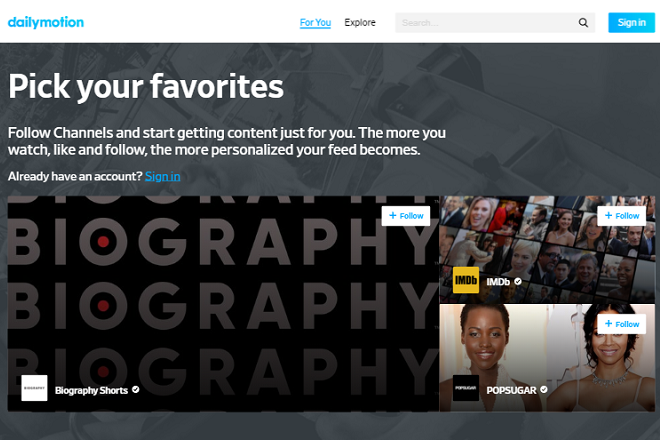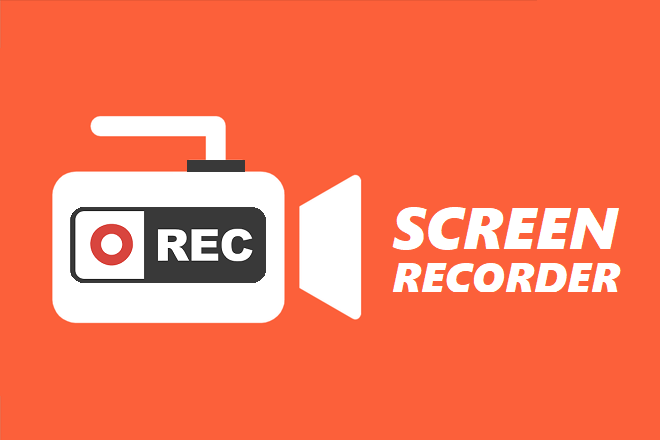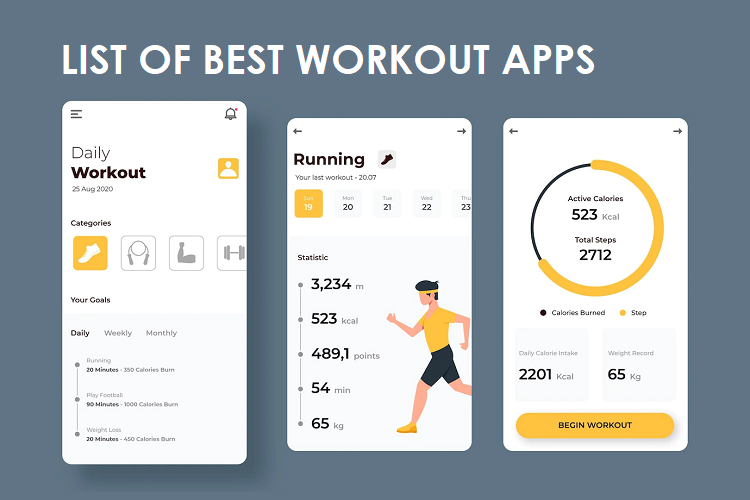Over the past ten years, it has become one of the largest video sharing communities worldwide and the primary source of entertainment, learning, and sometimes even news for millions of users. But it’s not always a bed of roses. In fact, as YouTube usage continues to grow, people have started raising issues about their rights to privacy, data sharing, or censorship. As a result, many people look for YouTube alternatives.
Thankfully, there are plenty of similar sites like YouTube that anyone could want or need. In this article, we will discuss the best YouTube alternatives that you should try. Using Vimeo or TikTok to share your videos might seem a bit strange, but these platforms might be better for you than those usual advertising outlets. So, let’s get started!
Why Consider YouTube Alternatives?
Before defining what people seek in an alternative to YouTube, it is important to explain the situations when one may decide to search for an alternative. Here are some key factors to consider:
1. Monetization Flexibility:
Despite having opportunities such as ads, sponsorships, and channel memberships, the creators chose to stay stuck relying on the algorithms and cut fractions of ad earnings. Some of the YouTube competitors such as Vimeo and Rumble offer much more opportunity to earn money on your own, as there is more freedom in comparison to the YouTube platform.
2. Content Freedom:
There are numerous restrictions and rules as well as, vlogging policies that are even inhumane and policed on the site, and Many of which are vague and unpredictable, giving content creators harsh consequences. Platforms like Vimeo and Kick have fewer restrictions of content with more freedom to express.
3. Community Engagement:
There is no better way for content creators than to engage their target communities and fans to attract more followers. Some of the substitutes are specifically designed to help creators engage with their audiences more directly, which leads to more organic interaction.
4. Discoverability:
Searching the content on YouTube or discovering the latest videos can be quite a task continued with the lack of a proper search tool. Other platforms including Dailymotion and TikTok provide personalized listing, which helps their users find more content that they may be interested in.
5. Privacy and Data Control:
There is a strong focus on privacy and the ability to control personal data among many people. People have been concerned with data collection at YouTube, and as part of Google, YouTube shares data quite often. That is why sites like PeerTube always keep users’ privacy in focus and give more options for data sharing.
Quick Comparison of YouTube Alternatives
| Platform | Key Features | Pros | Cons |
|---|---|---|---|
| Vimeo | Professional, high-quality videos | Ad-free, customizable player, creative community | Less suitable for casual creators or monetization |
| Dailymotion | Global video-sharing | User-friendly, flexible content policies | Smaller audience base |
| Twitch | Gaming and live streaming | Engaged community, robust monetization | Focused on live content |
| Rumble | Freedom of expression | High payouts, diverse content support | Niche audience |
| TikTok | Short-form, viral videos | Viral potential, younger audience | Limited to short-form content |
| Instagram Reels | Integrated with social media | Easy to use, strong social integration | Limited features compared to standalone platforms |
| Facebook Watch | Social video integration | Great for community engagement | Limited monetization options |
| Kick | Creator-focused platform | High revenue share, user-friendly | Smaller, less established audience |
| PeerTube | Decentralized and open-source | Privacy-focused, no centralized control | Requires technical knowledge, small user base |
| Patreon Video | Subscription-based video content | Direct fan support, exclusive content options | Not designed for discoverability |
The Best YouTube Alternatives
Let’s explore the list of the best YouTube alternatives that similar services for various needs, desires, and purposes.
1. Vimeo

Vimeo is a rapidly developing site for sharing videos, which can be considered as YouTube’s equivalent. Upload of artistic and professional videos are supported; Vimeo is free from ads and provides high-definition streaming for its users.
Pros:
- High quality videos with 4K and 1080p streaming in the forefront.
- An active arts area of media practitioners.
- Ad-free viewing experience.
Cons:
- Limited privacy settings.
- Limited opportunities compared to YouTube.
2. Dailymotion

Dailymotion refers to the French video-sharing service that has an international rival to the YouTube. It offers a large number of materials which are mostly music and entertainment related.
Pros:
- User friendly interface and effortless content search.
- Newsletter and comments sections are some of the features applicable to communities.
- Content can be watched without ad interruption.
- UCs- extended mobile apps and watch later feature.
Cons:
- It is not as popular as YouTube.
- There are limited opportunities available for monetizing amazing.
- Copyright problems can emerge because of vast amounts of content.
3. Twitch
Twitch is an Internet-based website for live stream and focused on video games. As seen, Twitch has millions of users and an engagement perspective for both users and content providers.
Pros:
- Attention paid to the sections with live streaming and games.
- Community for every individual content creator.
- Features such as chat and donations.
- His easy-to-use streaming platform for streamers.
Cons:
- Other content types are restricted primarily to gaming and esports.
- The monetization possibilities are far more directed at the live streaming.
4. Rumble
Rumble is a Canada-based video-sharing site, modeled as a free speech platform competitor to YouTube. The platform shall include both live stream and video on demand.
Pros:
- Closeness to free speech and open discussion.
- Easy to use platform for any content creators.
- Available platforms include Live streaming and Video-On-Demand.
- The content options are limitless and will continue to grow as the number of users.
Cons:
- The Web site has significantly fewer visitors as compared to YouTube.
- It should be noted that there are still limited monetization models available.
- Limited community features.
5. TikTok

TikTok is a social networking site where people share videos. Of course, not only fans fill TikTok, but funny videos as well that spread around the app and over the internet.
Pros:
- Accessible and convenient interface
- Popular content to be found that can be viral and popular.
- The broader strategy of a strong focus on a mobile app and many features.
Cons:
- It must be remembered however that short-form content may not be suitable for all content creating platforms.
- Fewer opportunities for generating advertising revenue than YouTube.
- Utilization of data and privacy.
6. Instagram Reels

Instagram Reels is therefore a feature within the Instagram application through which short videos can be made. The feature is like TikTok and provides content creation with a fresh avenue to display their creations.
Pros:
- This is conveniently done using an existing Instagram account and a user base or target niche.
- It is highly suitable for generating content that is likely to become viral or to go viral since these contents are short.
- Very frequently, it is about mobile applications and numerous features.
- Possibilities of earnings while making use of Instagram.
Cons:
- Less than those channel specific to video sharing.
- Depending on photo feed scrolls and user interaction.
- Competition with other new TikTok formats with similar features.
7. Facebook Watch

Facebook Watch is a standalone VOD system integrated into the application interface of Facebook. The platform enables the producers of the content to post extended and short clips on their Facebook account followers.
Pros:
- Login with existing Facebook account and existing users
- The uploader friendly ground to host contents.
- Ways to profit through AdSense and the provision of Facebook user revenue sharing plan.
- Expanding the availability of content for users by providing an algorithm from Facebook.
Cons:
- A limited audience as compared to YouTube.
- Depends mostly on the display of the newsfeed algorithm and the decisions of users.
8. Kick
Kick is a video-sharing social utility whose focus is in offering a positive environment to video owners as well as the people who watch videos. It is a site sharing both paid and free material and has education, creativity, and entertainment as its primary topics.
Pros:
- Safety and friendly content environment for authors and audiences.
- Concentration on education as well as creativity.
- Ads monetization forms for both paid and freemium product offerings.
- Convenient instrument for content creators.
Cons:
- Fewer viewers compared to the giant YouTube.
- It is still comparatively recent and has fewer people to contact.
- Fewer community related elements as well as options for their participation.
9. PeerTube
PeerTube is an open-source and fully P2P video hosting software that is social and sailed. That makes the platform significant as it helps content creators to post their content freely with no restrictions as they work with different corporations or their algorithms.
Pros:
- A decentralized platform unlike the centralization of the current commercial social media where the privacy and control belong to the end user.
- Free and available for use by everyone for content creation
- Peer-to-peer login to lessen torque on streams and enhance accessibility.
- Attention to the principles of free speech in the discourse.
Cons:
- Its audience is much more restricted in comparison with YouTube.
- More difficult to design learning long content for content creators and viewers.
- Few opportunities to make money visible.
10. Patreon Video
Patreon Video is a service that enables content developers to stream videos exclusively to their Patreon patrons. It has provided a channel that allows creators of content to benefit from their work by selling to their customers directly.
Pros:
- Direct connection interaction between Creators and their target consumer.
- Of a supporter subscription as well as payment for modeling Further monetization options include the supporter subscription and payments for modeling.
- Communal orientation and networking are key things to consider where the viewers are concerned.
- The possibility of being a platform that provides a different experience than traditional video platforms.
Cons:
- Low penetration compared to You Tube and other video sharing sites.
- Depends on the creator and the people who are already in Patreon.
- Restricted choice of content discovery and involvement.
Choosing the Right Platform for Your Needs
Selecting the best YouTube alternative depends on various factors:
- Aligning Goals: Think about your content objectives and whether the site meets them or not. In fact, if your target is the gaming content, you may choose to opt for twitch instead of YouTube. If you are looking to make corporate type, high-quality productions, then Vimeo might be the way to go.
- Audience Demographics: Knowing your audience’s identity is key in deciding which platform best suits your content. Every site has one target audience, so select the one that has the demographic that you believe your audience belongs to.
- Content Format: Some platforms are more suitable for live streaming, others are for short-form content, and still others are for long-form videos, so decide on which of these interests you.
- Platform policies: The content policies of the platform, monetization features and the general guidelines of the community you will be joining as a content creator will also be important things to look at.
Conclusion
As mentioned earlier, YouTube alternatives have a substantial presence in the market. These platforms are completely different and encompass different forms of media, content, and community engagement for users. Whether you see yourself as a content consumer interested in professionally produced content or as a user looking for a more interactive experience, there is a platform for you.
Given that users are increasingly interested in the privacy of their personal data, and some content on YouTube is moderated, people will continue to turn to YouTube alternatives. You may see how these platforms perform going forward depending on what kind of videos come out and what new creation and viewer opportunities emerge.






